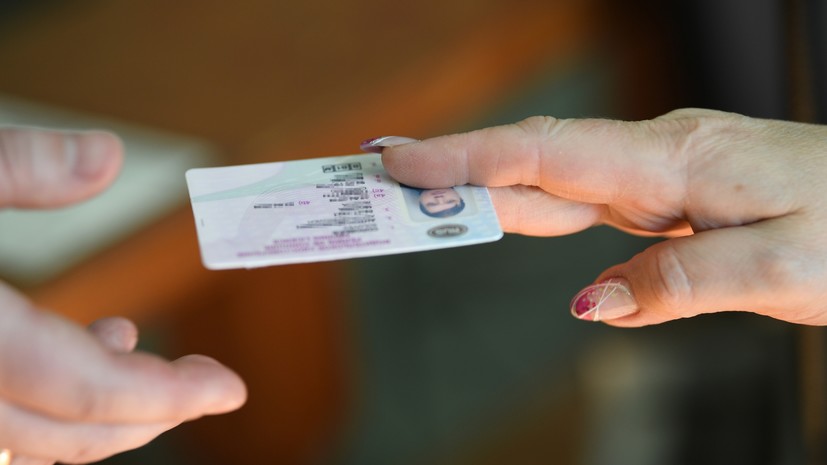In a number of Russian regions, an experiment may be conducted that will allow drivers not to carry a driver's license with them.
Instead, if necessary, it will be possible to present a mobile device with an application containing a special QR code.
According to Oleg Kachanov, Deputy Head of the Ministry of Digital Development, Communications and Mass Media, the experiment can take place in several “most digital” regions.
“We already have a definite plan, we have worked out it with colleagues from the Ministry of Internal Affairs, agreed and in an experimental format would like to launch it in 2021 on the territory of the selected subjects, the most digital ones, which are in the first four,” TASS quotes Kachanova.
He explained that the ability to leave a driver's license and vehicle registration certificate at home will be provided for drivers who will have a device with a mobile application installed, where they will have information about these documents in the form of a QR code.
According to Kachanov, in this case, the inspector will be able to read the code using a special device.
Yaroslav Nilov, the head of the State Duma Committee on Labor, Social Policy and Veterans Affairs, spoke positively about the initiative of the Ministry of Digital Science, noting the relevance of this idea.
“I fully support it.
The 21st century is in the yard, digital technologies are developing, and it was high time to move on to this, ”the parliamentarian said in an interview with RT.
He recalled that today it is already possible to use electronic compulsory insurance policies for motorists.
The MP stressed that in the current conditions there is no need to carry additional documents with you.
“Modern technologies make it possible to quickly understand whether a driver has the right to drive a vehicle or not; this requires access to a database and the Internet,” he said.
First Deputy Chairman of the Federation Council Committee on Social Policy Valery Ryazansky noted that the experimental initiative on "digital twins" of documents was dictated primarily by convenience for citizens.
“This is a matter of convenience, it often happens that you forget your driver's documents.
If all this is in one QR-code, maybe it will be even more convenient, ”the deputy believes.
At the same time, he called for the launch of the new system precisely as an experiment, in order to subsequently evaluate its results and make a decision on the implementation of such solutions.
“For convenience, you can try to conduct an experiment, how the situation will affect in practice.
We are nevertheless entering the period of using such electronic recognition systems ... I think that it is necessary to treat this as an experiment and only after that draw conclusions, "Ryazansky noted.
Note that at the meeting of the President of the Russian Federation with members of the government on January 13, Deputy Prime Minister of the Russian Federation Dmitry Chernyshenko made a proposal to conduct an experiment with "digital twins" of a number of documents frequently used by citizens.
The list includes an identity card, a driver's license, PTS and a certificate of registration at the place of residence.
The Deputy Prime Minister also recalled that on January 1, a law on a unified biometric system began to operate in Russia.
According to Chernyshenko, with the help of biometrics, you can remotely receive various services, including obtaining a loan and notarial documents without personal presence, registering with the MFC, and using this personal identification, students can be able to take exams online.
Maksut Shadayev, head of the Ministry of Finance, also spoke about the possibility of introducing "digital twins" of documents.
In November 2020, during a meeting of the Federation Council Committee on Economic Policy, he said that this scheme was tested using digital passes.
He explained that checking the QR codes on the passes by the Interior Ministry officers demonstrated the efficiency of this system.
In addition, in the spring of 2020, the Ministry of Digital Science proposed to conduct an experiment in Moscow to get citizens of a number of state, municipal and other services using a special mobile application instead of a passport.
The initiators of the project believed that in most cases the application would be able to replace a citizen's passport, and in the future, other documents, such as student cards and social cards.
The department hoped to prepare a corresponding application by the end of August, which would allow its application to begin on December 1, but the government decree necessary for this has not yet been signed.

